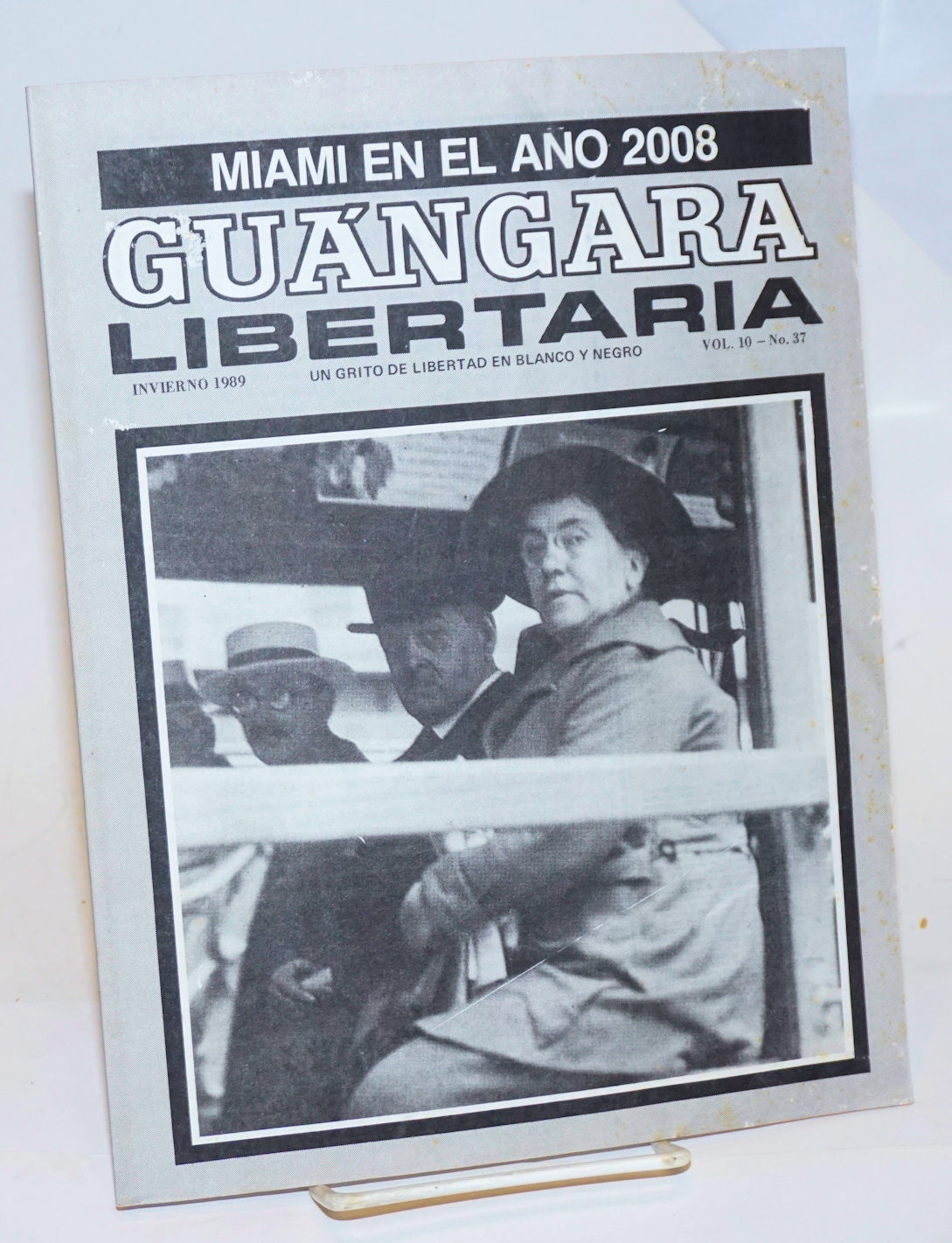People often look at me like I have two heads when I tell them about Cienfuegos Distro. A worker-owned cooperative? A radical bookstore, café, publisher, and event space? In Miami? Yes, yes, and hell yes. I started Cienfuegos with some compadres in 2020 with the precise mission to cultivate radical left culture in the depths of the South.
Folks are used to thinking of Florida and luxury-obsessed Miami as strongholds for the far right. The state is a destination for snowbirds and far-right maniacs to come guzzle gas and don bikinis. You might think Florida is where radical ideas come to die. Think again.
Yes, Florida has long been headquarters for the Right. Right-wing Latin American dictators kept vacation homes here. Many of these monsters are buried in cemeteries and mausoleums across the Sunshine State. Their spirits still haunt locals, seemingly warning them constantly about the dangers of ‘Socialismo!’ and universal healthcare.
But that’s just the surface. Florida, lest we forget, is first and foremost part of the Caribbean. Untold histories reveal that Florida was an important node in an internationalist movement of radicals who moved freely between the islands and the mainland for nearly a century. This network was home to militant publishers and activists who fostered critical thought, mental dynamite, and liberation movements wherever they and their writings landed.
Anarchism has a long and proud history in Cuba, though the current government and the cultural powerbrokers of the diaspora have worked hard to conceal it. Followers of the French anarchist Pierre-Joseph Proudhon landed on the island in 1857, toward the end of the colonial period. They created mutualist groups and cooperatives, mounted mutual aid programs, and founded the first anarchist paper in 1865, La Aurora. La Aurora advocated for workers’ co-ops and the anarchist vision of a self-organized society, where power flows from the bottom upwards and outwards.

La Aurora was published by, distributed to, and read aloud to tobacco workers, who pooled their money to hire anarchist leaders to speak while they rolled cigars. This was equally common in Key West and Tampa, where the industry expanded. Cuban products and radical ideas circulated freely throughout. The tobacco rollers became known for their tenacious organizing, and pulled off labour strikes in Cuba, Florida, and even New York. Anarchist periodicals, pamphlets (these glorious proto-zines), newspapers, and books followed them wherever they went.
Meanwhile, in Puerto Rico, anarchist hero Luisa Capetillo was organizing similarly. At the turn of the century, Capetillo travelled extensively to the Dominican Republic, Cuba, and Florida, to speak and organize workers. She championed anarchism, free love, workers’ self-management, direct action, and universal suffrage. She even played with gender expression — Capetillo famously went to jail for wearing pants. Her essays were published in anarchist pamphlets in the Caribbean and beyond, and she founded an anarcho-feminist newspaper, La Mujer, in 1910.
Later, in the 1960s, many Cuban anarchists fled the homeland as Fidel Castro clamped down on dissent, turning on many of those who had made his revolution possible. They regrouped in Miami to continue organizing, daringly publishing both anti-capitalist and anti-authoritarian literature. In Guangara Libertaria, they offered sharp critiques of Western Capitalism and the dictatorships of China, the USSR, and Cuba alike. It was exceptionally rare for a Cuban-American publication in Miami to criticize the authoritarian excesses of the Castro regime while, in the same breath, denouncing American capitalism.
These heroes largely networked through the writing, publication, and circulation of radical texts — what we would call zines today. They saw a necessity to spread the word, and inspired international link-ups between critical thinkers, rebels, and builders globally. Those of us here with Cienfuegos Distro see ourselves as part of this tradition. We humbly ask for your support. Get in touch, compa.


